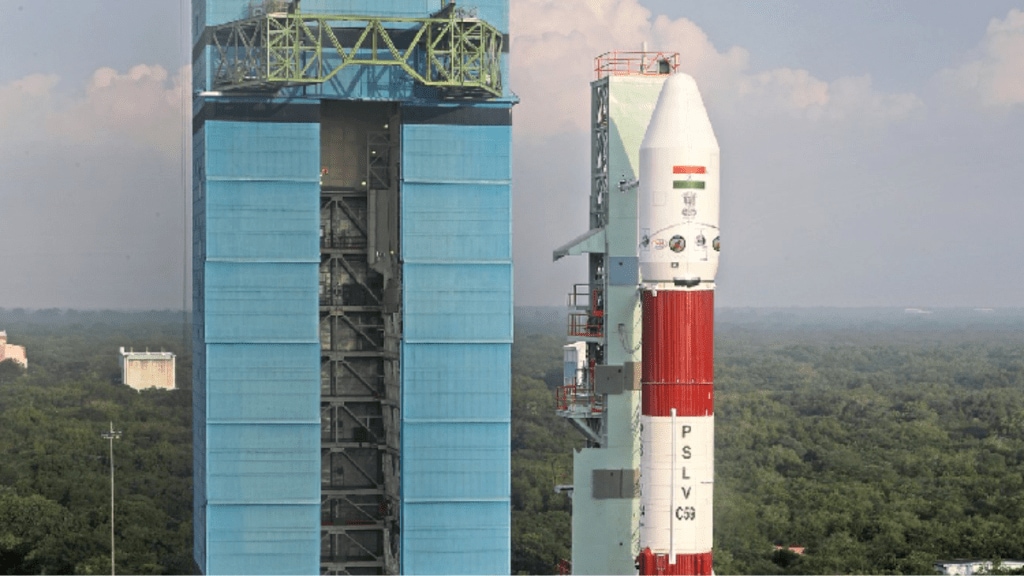The Indian Space Research Organisation (ISRO) has announced that it will launch the PSLV-C59/PROBA-3 mission on December 4, at 4:06 p.m. from the Satish Dhawan Space Centre in Sriharikota, Andhra Pradesh. This highly anticipated mission will see the Polar Satellite Launch Vehicle (PSLV) carry nearly 550 kg of satellites into a highly elliptical orbit.
The mission will be a significant milestone in space exploration, as it involves the launch of the European Space Agency’s (ESA) PROBA-3 satellites, which are part of an “In-Orbit Demonstration (IOD) mission.” The goal of the mission is to demonstrate precise formation flying, a technique that will allow two spacecraft to operate together in perfect alignment.
ISRO highlighted that the PSLV-C59 mission will consist of two spacecraft: the Coronagraph Spacecraft (CSC) and the Occulter Spacecraft (OSC), which will be launched together in a stacked configuration—one on top of the other. This formation will allow the spacecraft to conduct their experiment on the solar corona, the outermost and hottest layer of the Sun’s atmosphere. PROBA-3 is the world’s first precision formation flying mission, marking a major achievement in space research.
In a statement posted on social media, ISRO said, “The PSLVC59/PROBA-3 Mission, the 61st flight of PSLV and the 26th using PSLV-XL configuration, is set to carry ESA’s PROBA-3 satellites (~550kg) into a highly elliptical orbit.”
The PSLV (Polar Satellite Launch Vehicle) has a long history of success, having made its first successful flight in October 1994. PSLV is known for its reliability and versatility in carrying various payloads into space. This particular launch will be the 59th flight of PSLV, and it will showcase the trusted precision of the PSLV launch vehicle.
The launch will also demonstrate the close collaboration between ISRO, NewSpace India Limited (NSIL), and the European Space Agency (ESA). According to ISRO, “This mission exemplifies the trusted precision of PSLV and the collaboration of NSIL, ISRO, and ESA.”
The PSLV-C59 mission will lift off with a total mass of around 320 tonnes, and it will consist of four stages of launch. Following this mission, ISRO will continue to expand its space exploration goals, with the latest launch set to further enhance global scientific collaboration.
This mission comes after the PSLV-C58 mission, which launched the XPOSAT satellite into a low inclination orbit on January 1, 2024. The PROBA-3 mission will make a significant contribution to the study of solar phenomena, marking another achievement for India’s growing space ambitions.
As ISRO prepares for the mission, space enthusiasts and researchers eagerly await the launch, as it promises to be another leap forward in space exploration and technology.

